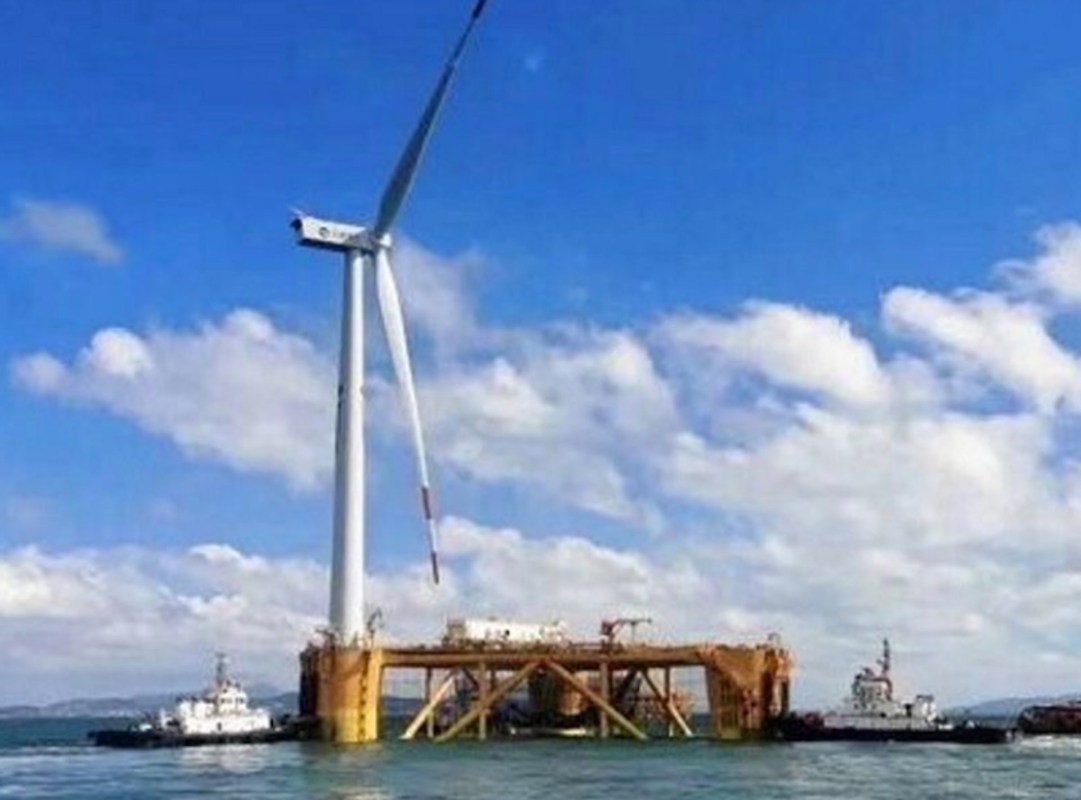China is reportedly continuing its reign as a pioneer in clean energy, unveiling a floating system that demonstrates good things do indeed come in threes.
Recharge reported in November that Chinese developer Longyuan collaborated with turbine maker Shanghai Electric to debut the world's first floating three-in-one solar, wind, and fish farming system.
"The pioneering convergence of wind power, photovoltaics, and aquaculture presents a new horizon for the industry," the partners said in a statement quoted by Recharge.
According to Electrek, the three-columned hybrid system, located in Fujian Province, was tested in almost 200 conditions and can generate the "equivalent to the daily energy consumption of 42,500 people."
With billions of people relying on seafood as a major part of their diets, there have been numerous calls to protect our oceans. Plastic pollution and carbon pollution linked to rising global temperatures are just a couple of factors negatively impacting marine life.
As detailed by the National Oceanic and Atmospheric Administration's Fisheries division, potential benefits of aquaculture include economic growth, more sustainable fishing, and the ability to provide for a growing global population.
"While capture fisheries will remain relevant, aquaculture has already demonstrated its crucial role in global food security, with its production growing at 7.5% per year since 1970," Qu Dongyu, the director-general of the U.N.'s Food and Agriculture Organization, wrote in a 2020 report.
Aquaculture already produces less carbon pollution than livestock farming, as NOAA Fisheries pointed out, but China's use of clean energy to power the system further reduces the negative environmental impact while also benefiting our health.
According to the World Health Organization, 99% of people worldwide are breathing air that doesn't meet quality standards, while a report by the U.N. found that almost 90% of carbon dioxide (CO2) pollution comes from dirty energy like oil, gas, and coal.
"Current energy concerns highlight the importance of speeding up the transition to cleaner, healthier energy systems," Dr. Tedros Adhanom Ghebreyesus, the director-general of the WHO, said in an official statement last year.
Join our free newsletter for weekly updates on the coolest innovations improving our lives and saving our planet.









